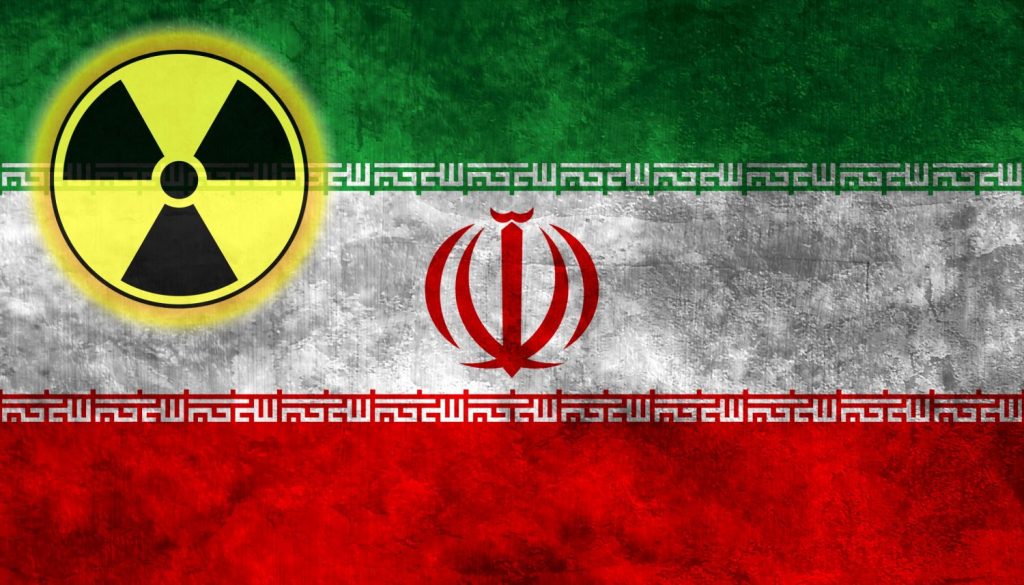IN THE MEDIA
Imminent Iran nuclear deal looks like a terrible outcome
September 6, 2022 | Colin Rubenstein

The Daily Telegraph – 6 September 2022
The European Union released a self-described “final” proposal to Iran in mid-August, aimed at closing the gaps between Teheran and the P5+1 (US, UK, France, Russia, China and Germany) to revive, in some form, the 2015 Joint Comprehensive Plan of Action (JCPOA) deal on Iran’s illegal nuclear weapons program. Recently, a flurry of reports have suggested a deal is close, even imminent.
Yet Iran rejected the EU’s “final” offer out of hand, while deftly signalling it would offer counterproposals.
Meanwhile, reports on the EU draft itself, if accurate, alarmingly suggest the crossing of numerous previously sacrosanct red lines – including potentially making it harder to reimpose sanctions; allowing Iran to keep illegally built advanced centrifuges; limiting or circumscribing ongoing International Atomic Energy Agency investigations into past illicit Iranian nuclear weapons activities; and easing unrelated sanctions imposed for Iranian terror activity.
Analysts have detected a shift in the messaging by Iran’s hardline Government to its people, from downplaying the need for a deal, to promoting a narrative whereby accepting a deal on Teheran’s terms – now or later – would be a great triumph for the regime over hostile foreign interlocutors.
The key words are “on Teheran’s terms”.
Sanctions have clearly been a thorn in Iran’s side, reducing its ability to sponsor global terrorism and the aggressive, expansionist, military destabilisation Teheran continuously instigates through proxies such as Yemen’s Houthis, Lebanon’s Hezbollah, and Palestinian Islamic Jihad and Hamas in the West Bank and Gaza.
Yet Iran’s leaders have never been genuinely willing to pay the price of permanently abandoning nuclear weapon ambitions to have sanctions removed – though clearly prepared to make empty promises. As former Israeli Prime Minister Binyamin Netanyahu said, Iran’s thinly disguised goal is to have its “yellowcake and eat it, too.” That is, achieve sanctions relief, and still become, if not a fully-fledged nuclear-armed power, then, at minimum, a nuclear threshold state able to weaponise at a moment’s notice, and thus able to enjoy the full strategic and status advantages of being a nuclear power.
Disturbingly, it appears the P5+1, led by the US, may be preparing to strike a deal to allow Iran to achieve exactly this outcome.
The JCPOA’s most fundamental flaw was offering Iran open-ended sanctions relief for limited and temporary nuclear concessions. Then-US President Barack Obama acknowledged in 2015 that, even if Iran abided by the deal, its advances in centrifuge technology under the deal’s terms would eventually shorten its breakout times “almost down to zero.”
That “eventually” is now imminent. The JCPOA’s “sunset clauses”, gradually lifting all restrictions on Iran’s nuclear enrichment, all come into effect in just a few years.
Moreover, in exchange for this almost uselessly weak deal, Iran will gain a financial windfall credibly estimated to be US$275 billion (AU$396 billion) during the first year and US$1 trillion (AU$1.44 trillion) by 2030.
Even if it briefly delays Iran’s nuclear progress, these financial benefits will supercharge Teheran’s ability to target the oil fields, tankers and refineries of Gulf states, driving up energy prices; wage missile and drone wars against Israel and the Arab Gulf states through its proxies; hunt down dissidents and political adversaries; and threaten to obliterate Western countries in a nuclear holocaust by developing intercontinental ballistic missiles.
How can we be so sure Iran’s clerical rulers will follow this devastating path rather than moderate through increased acceptance and concessions from the West? Because they are already doing so as much as possible even under the sanctions.
In August alone, we saw it all: a pro-Iranian zealot nearly assassinated author Salman Rushdie, the subject of a death warrant by Iranian clerics for decades; an Iranian Islamic Revolutionary Guard Corps (IRGC) assassination plot against former US officials John Bolton and Mike Pompeo was uncovered; an apparent Iranian-sponsored attempt was made to murder prominent Iranian dissident Masih Alinejad in New York; a bomb was uncovered at a Swedish festival where an Iranian dissident singer was to perform; the IRGC released a video threatening to build nuclear missiles capable of “turning New York into hellish ruins”; and a threatened major terror attack on Israel by the Iranian-funded and controlled Palestinian Islamic Jihad (PIJ) was thwarted in a three-day escalation that saw more than 1,100 rockets launched by PIJ from Gaza at Israel, even as Teheran hosted its leader.
We know Iran’s intentions because we’ve seen this movie before. After the JCPOA was approved in 2015, Iran poured billions into its war machine instead of improving the lives of ordinary Iranians.
The terrible bargain being struck here seems obvious – at best minimal and brief restraint on Iran’s nuclear program, in exchange for greatly empowering a rogue regime to murder, destabilise, proliferate, become more powerful and threatening, and also intensify active and genocidal plans to try to surround, overwhelm and destroy Israel.
It will be a strategic error of monumental proportions if better, stronger alternatives are ignored in favour of a wilfully blind belief in some quarters that the always inadequate JCPOA, now greatly weakened by the passage of time and imminence of the sunset clauses, is the answer to Iran’s increasingly dangerous and illegal nuclear program.





